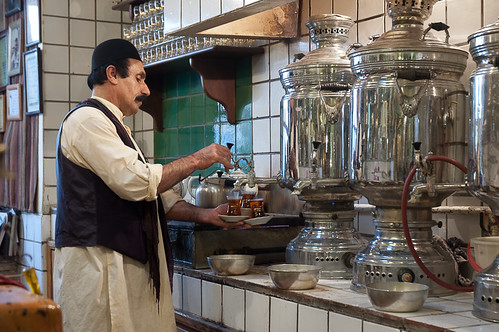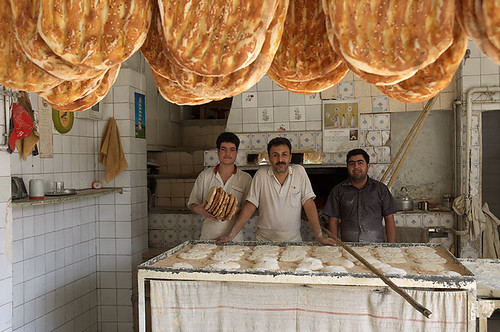As the resident dealchecking foodie, I thought I might start a monthly food blog dedicated to worldwide culinary marvels. Whether they be mouth watering or stomach turning they will all have something in common….. FOOD.
This month I lose myself in the Middle East; particularly the countries of Iran/Persia and Afghanistan. I have not ventured to that part of the globe but some of my favourite delicacies come from this region and I’m intrigued by their local flavours and exports.

Image by Michal Hvorecky
Street food seems to have a prominent role in the diet of those living in Tehran. Blogs from the nation describe Corn Cup, Boiled Beets and Fava Beans among their most popular street snacks. Considering they are prepared by the side of the road, they may prove a risk for the unfamiliar digestive system however from a nutritional perspective they are certainly of greater value than the typical fast food snacks we Brits consume.

Fava beans – Image by Ron Diggity
Corn (as in maize/corn kernals) are high in protein and fibre, filling you up and keeping you satisfied for a few hours. Beetroot has been termed a superfood for its effects on the cardiovascular system (lowering blood pressure) and because it is high in antioxidants and vitamin C.

Image by kamshots
Tea features heavily in a number of cultures worldwide (especially here at dealchecker HQ) and Iran is no exception. Tea plays an important role in social life and symbolises the end of the meal when everyone relocates to the living room to rest and digest. Served in a small glass, without milk, Persian tea sounds simply delicious. The way of sweetening the tea is to hold a cube of sugar in your mouth while you drink from the glass. The addition of some spices and a chuck or two of ginger raise the nutritional value of a cup of tea. A typical recipe includes the following:
• Brew black tea of your choice, preferably fresh loose leaf tea
• A chunk of fresh, peeled ginger
• A cinnamon stick
• Up to 3 cardamom pods
• A splash of either rose water or orange blossom water
Ginger will stimulate and support the immune system and the strong scent of cardamom is a sure fire wake up call. Cinnamon has been found to help balance blood sugar levels which is beneficial when combined with the caffeine in tea which can set your blood sugar levels off on a rollercoaster.

Tea and dates – Image by mi)
The main edible exports from Afghanistan are grapes, pomegranates, apricots, berries and plums not to mention nuts such as walnuts, pistachios, almonds and pine nuts. Breads and rice have a prominent role in the diet of Afghans, often accompanied by a Qorma (a form of stew). All Qormas start with onions, richly caramelised with herbs and spices such as saffron, cardamom and coriander before the lamb, chicken or veal are added and cooked slowly. The use of herbs and spices in cooking have important benefits to our health. Cardamom is known to support digestion and improve metabolism; coriander is seen as an antibacterial, therefore supporting the immune system and is often used in herbal blends for immunity.

Image by kamshots
Food is a social event in the Middle East, everyone is welcome and no one ever leaves the table hungry. Meals are prepared from fresh and families eat together. Afghans believe that food is elemental in nature and is will regarded. There is great pride in cooking and creativity encouraged in using the wonderful medley of flavours that are abundant across the land.
Top image by Hamed Saber